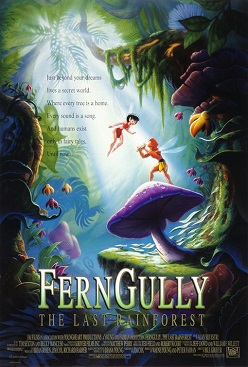 Image via Wikipedia
Image via WikipediaNominations: Art direction, Cinematography, Directing, Film editing, Original score, Best picture, Sound editing, Sound mixing, Visual effects
In our goal to give somewhat fair (we're not going to pretend to be completely unbiased here) and fully-informed coverage of the Academy Awards this March, Joey and I are determined to not only view every film up for a major award, but to review them as well.
With this in mind, it would seem a bit unfair not to mention Avatar with the others as we review them. However, our opinions have been broadcast quite clear; we have talked about the film in ad nauseum on the MovieSucktastic Podcast, and have covered it in numerous blog posts.
So, just consider this a quick recap:
Avatar is, without a doubt, the most popular film of the year, and most likely one of the most popular films of the decade. A mega-budget sci-fi fantasy space epic that takes place on a completely CGI-rendered alien planet, Avatar is filled with some of the most impressive displays of computer animation and 3D film-making to date. It is truly a stunning visual spectacle to behold.
It is also a film that features a shallow, thin, and decidedly unoriginal plot. Pointed out by many critics to be nothing more than a literal copy of Dances with Wolves, Pocahontas, and even Ferngully (which has seen a rocketing increase in sales and rentals due to the unfavorable comparisons), Avatar has received so much deserved criticism regarding the screenplay that director James Cameron has had to come out and publicly respond to accusations of blatant plagiarism. It is an overly simplistic plot that is more suitable for its cartoon feature predecessors, and barely manages to hold together the overly-long 162 minutes special effects extravaganza, especially considering that the PG-13 film was geared towards children and family audiences.
Avatar deserves most of its Oscar nominations. The sound, score, direction, editing and visual effects are all noteworthy for what they achieved. But primarily, all of this is driven by a film's story, the vehicle that drives everything that takes place on screen. As a whole, the excellence of what takes place on the screen in Avatar is weakened and diminished by the inadequate and generally lazy screenplay. The fact that this shallow spectacle has actually garnered an Oscar nomination for Best Picture is nothing more than an insult to all of the other films, past and present, that bothered to lend as much attention to the craft of the storytelling as they did for the visual effects utilized to enhance it.
The truly sad part of it is, Avatar might not have gotten its Best Picture nomination if the Academy hadn't bloated the size of the category to ten nominations The previously sufficient five slots wouldn't have left them enough room to also nominate District 9, so they wouldn't look like complete idiots for passing over a film that managed impressive special effects and a great screenplay (which it has also been nominated for, by the way) at a fraction of Avatar's ridiculous budget.
It is also my theory that the only reason they didn't try to nominate Avatar for screenplay isn't because it was a weak script, but because it would be hard to rationalize whether it belonged in the Original or Adapted category.
There, I think I'm done now.
![Reblog this post [with Zemanta]](http://img.zemanta.com/reblog_e.png?x-id=ddfa59d9-a2cc-46b7-8c3d-e15ec88db49b)

![Reblog this post [with Zemanta]](http://img.zemanta.com/reblog_e.png?x-id=f14c846e-eaeb-4971-a3ec-85056f278fe2)